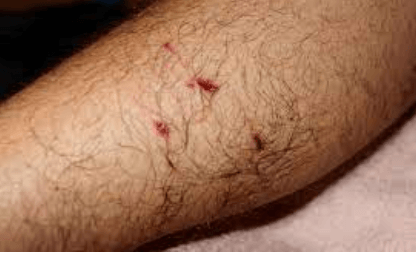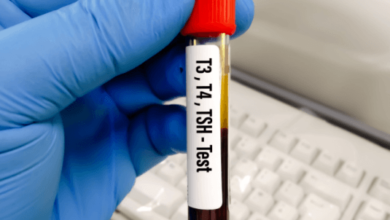Battling Infections: Recognizing and Treating Infections After Dog Bites

Dog bites can cause severe infections if not treated promptly and correctly. Dogs have bacteria in their mouths that can infect wounds, leading to complications and making the injury worse. For people in Pittsburgh who have suffered a dog bite, it is crucial to understand the signs of infection and the appropriate treatment steps. Recognizing the potential for infections is also essential for managing and pursuing dog bite injury claims, ensuring that victims receive the necessary medical care and compensation.
Winning strategies for dog bite injury claims in Pittsburgh can significantly impact the recovery process and legal outcome for those dealing with the consequences of a dog bite. Experienced legal professionals can guide victims through the complexities of the legal system, advocating for their rights and ensuring they are compensated for all aspects of their injury, including the costs associated with treating infections.
Early Signs of Infection
Recognizing the early signs of infection is crucial for anyone who has been bitten by a dog. Symptoms may include redness and swelling around the wound, increased pain, fever, and pus or fluid leaking from the injury. If any of these signs are observed, it’s imperative to seek medical attention immediately.
Early intervention can prevent the infection from spreading and becoming more severe. Prompt treatment can also help to alleviate the pain and discomfort associated with the bite. In addition, seeking medical attention as soon as possible can help prevent the need for hospitalization or extensive medical treatment, which can be costly and time-consuming.
It’s important to remember that even minor dog bites can lead to infection. Therefore, it’s crucial to monitor the wound carefully and seek medical attention if any signs of infection are observed. By taking these steps, individuals can protect their health and well-being and ensure that they receive the appropriate treatment for their injuries.
Treatment Options for Infected Wounds
Dog bites can be quite severe, and an infected dog bite wound can cause further complications. If you are bitten by a dog, it is crucial to seek medical attention immediately. The treatment for an infected dog bite wound typically involves cleaning the area, possibly prescribing antibiotics to fight the bacterial infection, and in some cases, surgery to remove damaged tissue.
Medical professionals may also recommend a tetanus booster if the victim’s vaccination is not up to date. It’s important for victims to follow their healthcare provider’s instructions closely and complete the full course of any prescribed antibiotics, even if the symptoms of infection begin to improve, to ensure the infection is fully eradicated. Failure to take the full course of antibiotics can lead to the development of antibiotic-resistant bacteria, which can be difficult to treat and potentially life-threatening. Therefore, it is crucial to complete all medication as prescribed and follow up with your doctor if you experience any complications.
Legal Implications of Infections from Dog Bites
Dog bites can lead to infections that complicate physical and financial recovery. In addition to the initial injury, infections can result in additional medical expenses, lost wages, and other costs. Therefore, when pursuing a dog bite injury claim, it’s essential to consider the full scope of the injury, including any infections that have arisen.
Documenting any infections arising from a dog bite is crucial, detailing the treatment plans and related expenses. Documentation from healthcare providers is vital for substantiating the claim. Legal professionals specializing in dog bite cases can use this information to argue for comprehensive compensation, covering not only initial medical expenses but any additional costs incurred due to complications like infections.
If a dog has bitten you or someone you know, it is essential to seek medical attention immediately and document all treatment received. Additionally, you should consult with a legal professional specializing in dog bite cases to ensure that you receive the compensation you deserve for your injuries, including any related infections.
The Role of Legal Advocacy in Recovery
Securing the services of an attorney experienced in dog bite claims is a crucial strategy for victims. These legal advocates understand the nuances of personal injury law as it relates to animal attacks and can handle the claims process on behalf of the victim. They work to ensure that all medical aspects, including infections, are factored into the compensation, advocating for the victim’s right to a full recovery.
With their expertise, victims can focus on healing while their legal team focuses on securing the compensation they deserve. Additionally, dog bite attorneys can investigate the incident, gather evidence, and consult with experts to build a strong case. They can negotiate with insurance companies and other parties for a fair settlement. By hiring an experienced attorney, victims can have peace of mind, knowing that their rights are protected and they have the best chance of obtaining a favorable outcome.
Read also Eco-Friendly House Cleaning Solutions: Removing Pet Hair from Furniture
Preventative Measures Post-Dog Bite
Following a dog bite, taking proactive steps to prevent infection and ensure proper healing is crucial. Here’s a rundown of essential preventative measures to consider post-injury:
- Initial Wound Care: Immediately clean the wound with soap and water to remove bacteria and debris. Gentle but thorough cleaning can significantly reduce the risk of infection.
- Application of Antibiotic Ointment: After cleaning, an antibiotic ointment can help prevent bacterial growth in the wound area.
- Covering the Wound: Use a sterile bandage to protect the wound from further contamination and support the healing process.
- Seek Medical Attention for Severe Wounds: If the wound is deep, continues to bleed, or is caused by an unknown or unvaccinated dog, it’s essential to seek medical attention as soon as possible.
- Monitoring for Infection: Watch the wound for signs of infection, including increased redness, swelling, pain, or drainage. Any of these symptoms warrant a prompt visit to a healthcare provider.
- Follow-Up Appointments: Adhering to scheduled follow-up appointments allows healthcare providers to monitor the wound’s healing progress and address emerging concerns.
- Education on Wound Care: Victims should be educated on proper wound care techniques and the importance of monitoring for infection, empowering them to take an active role in their recovery process.
Empowering Victims Through Knowledge and Support
Victims of dog bites need to understand the risks and treatments available for infections that may occur after the incident and the legal resources that can aid them in their recovery. Knowledge and support from medical and legal professionals can help victims manage the aftereffects of a dog bite more effectively and ensure they receive the necessary care and compensation to move forward.
Infections following dog bites can have serious health consequences, so seeking prompt and adequate medical treatment is crucial. For victims in Pittsburgh, seeking medical treatment and knowledgeable legal advocacy can provide a dual approach to addressing the immediate and long-term impacts of their injuries. By recognizing the early signs of infection, pursuing appropriate medical treatment, and utilizing winning strategies for dog bite injury claims, victims can recover and protect their rights to compensation.







